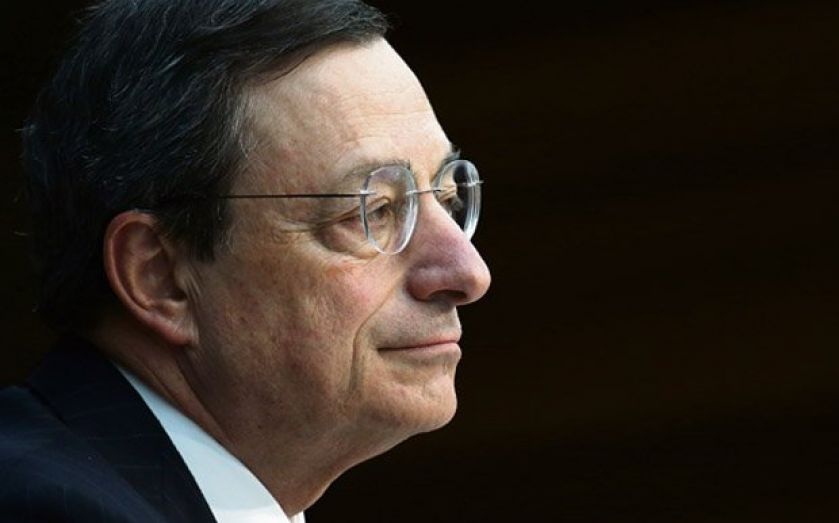As the ECB “steps up” stimulus plans, will it do enough to prevent a Eurozone recession?

Azad Zangana, European economist at Schroders, says Yes.
The 2015 outlook for the Eurozone is precarious. Governments are continuing with austerity, while business surveys suggest a downturn is on the horizon.
Markets are demanding the European Central Bank (ECB) adds QE to the measures already being used.
Despite German resistance, president Mario Draghi has stated that QE is on the table, but that the governing council wants to give current measures a chance to work before starting the controversial policy.
Falling oil prices will make the Eurozone an even more deflationary area, but they’ll also provide a boost to household finances and help raise consumption.
The banks are recovering from over two years of scrutiny and deleveraging, and should return to normal lending in coming months, boosting credit and investment.
While the ECB failed to give markets what they wanted for Christmas, a New Year’s resolution which includes QE is likely, pushing the euro lower, and aiding the flagging economy.
Jonathan Loynes, chief European economist at Capital Economics, says No.
Mario Draghi left little doubt yesterday that the central bank will launch a programme of QE, probably in January.
But there are reasons why it is unlikely to revive the Eurozone economy.
First, the international experience of QE is not encouraging. The US Federal Reserve and Bank of England have undertaken huge programmes, with little proof of a major boost to growth.
Second, QE in the Eurozone could be even less effective than elsewhere, thanks to the particularly weak state of the region’s banks and the already low levels of bond yields across the region.
And third, given the ECB’s normal timidity and the strong objections of Germany, it would be no surprise if a QE programme is half-hearted.
The ECB’s current intention to re-expand its balance sheet to 2012 levels would leave it well behind other central banks.
The ECB has to try QE, not least because the markets expect it. But don’t bank on it to avert recession and deflation in the currency union.